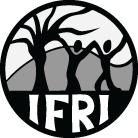First Annual FLARE Network Conference: November 27th-30th, 2015
IFRI is developing a Community of Practice, Forests & Livelihoods: Assessment, Research, and Engagement (FLARE) network which aims to advance the state of knowledge regarding forest-based livelihoods. By bringing together representatives of key stakeholders – donor organizations, environmental and social NGOs, development agencies, and research organizations – we will build on and leverage existing expertise and efforts to share and advance cutting edge knowledge and conversations on forest-based livelihoods. Ultimately, the goals of FLARE are to generate usable information and methodologies for collecting it; develop, promote and share the findings of the group; and implement such tools, knowledge, and methods to improve monitoring efforts and, ultimately, the efficacy of forest-dependent livelihood interventions around the world. Together with the Program on Forests of the World Bank (PROFOR) and the Musée de l’Homme Research Group on Social and Natural Evolution, IFRI will launch the FLARE network with an exciting conference event in Paris, just prior to the Conference of Parties on Climate Change (COP). The conference will be held at the Musée de l’Homme in Paris, France.
CONFERENCE AIMS
Reducing poverty and increasing adaptive capacity relying on forests is difficult to implement and monitor, but it can be done – successful examples around the world exist at both community and household levels, and both the social and natural science methods behind these challenges are at a watershed. The first annual FLARE conference will advance cutting edge knowledge on forest-based livelihoods, laying the groundwork to further develop tools, methods, and indicators to assess how, where, and why interventions function best to protect forests, reduce terrestrial GHG emissions, and improve the lives of forest-dependent peoples within the larger landscape context. Through a series of oral presentations, speed talks, posters, and workshops, we will create a strategy to catalyze analyses of existing large-scale forest, census, and household datasets; generate functional analytic frameworks, indicators, and methodological products to assess outcomes of forest sector interventions; identify areas of needed research; and promote the broader adoption of these products by researchers, practitioners, and policy makers alike.
CLICK HERE TO READ ABOUT THE SIX CONFERENCE THEMES.
CONFERENCE MATERIALS
Conference participant feedback report
Presentation and paper submission guidelines: Oral and lightning presentations
Presentation and paper submission guidelines: Posters
Participant list and presenter abstracts
Conference program ‘At a Glance’
Lunch options list and Google Map
Location & Accommodation Information
CONFERENCE SCIENTIFIC COMMITTEE
Christopher Barrett (Cornell University)
Tony Bebbington (Clark University)
Rosina Bierbaum (University of Michigan)
Guillermo Castilleja (Moore Foundation)
Robin Chazdon (University of Connecticut)
Michael Dove (Yale University)
Paul Ferraro (Georgia State University)
Susanna Hecht (University of California, Los Angeles)
David Kaimowitz (Ford Foundation)
Alain Karsenty (CIRAD)
Eric Lambin (Stanford University)
Jan McAlpine (International Consultant)
Peter Messerli (University of Bern)
James Murombedzi (UN Econ Comm. for Africa)
Tuyeni Mwampamba (UNAM CIEco)
Harini Nagendra (Azem Premji University)
Robert Nasi (CIFOR)
Thomas Sikor (University of East Anglia)
Britaldo Soares-Filho (Universidade Federal de Minas Gerais)
Sven Wunder (CIFOR)
News
IFRI Special Issue Collaboration
(17/09/2016)
FLARE Announces Keynote Speakers

